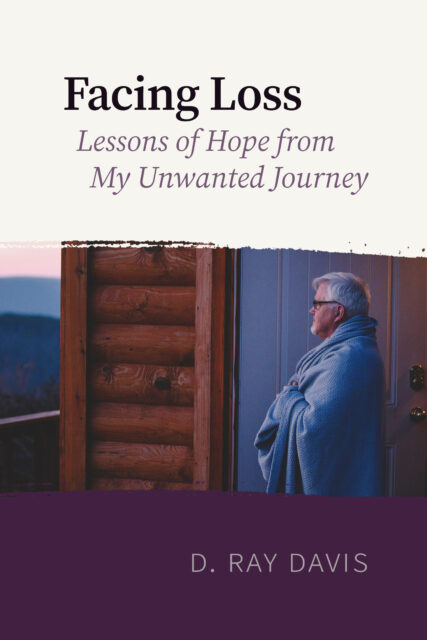“Or who has given a gift to him that he might be repaid?” Romans 11:35
It makes perfect sense to wrestle with the randomness of loss—no rhyme or reason. “Everything happens for a reason,” it is said. But, I’m not so sure. Romans 8:28 teaches that God causes all things to work together for good—with an important caveat. However, Paul doesn’t present God as some causal architect, orchestrating every good and bad thing to happen. Instead, God is presented as someone who causes all things—whether good or bad—to work together for good. Difficult circumstances can tests us, yes, but God doesn’t tempt us (James 1:13).
I understand God’s omnipotence, omnipresence, and omniscience, but not one of those truths means he is omni-causal. I thought I made that word up until I searched online. Omni-causality is a teaching that God is the impetus or cause behind everything. Everything. But his power, presence, and knowledge do not mean that he is causing everything as if we are robots in some game God is playing.
James teaches us that we are without excuse due to evil within us. Sometimes bad things happen because we or the world are evil. James says, “…each person is tempted when he is lured and enticed by his own desire” (James 1:14). We cannot blame evil on God. Evil, and the subsequent pain it brought, is a result of the Fall. Evil is in the world, and evil is in us. God does not cause all things in every way. But I’m in over my head now with this sort of theological wrestling.
When you face loss, important and weighty theological issues come to the forefront. Questions swirl in your mind. And simple or assertively delivered explanations frankly do not suffice. Pain is not assuaged by information.
Therefore, stand in reverent humility before God. Bring no accusation before him.
People often argue that God is either unloving or powerless when bad things happen. The argument goes that if he is powerful enough to stop something but doesn’t, it just proves he isn’t loving as he claims. He didn’t intervene because he didn’t care. Or if he can’t stop suffering, he isn’t powerful as he claims. He cared and wanted to stop the tragedy, but he just couldn’t win the day. At least not this time.
But, it’s just not that simple.
God created the world good. Sin messed everything up. Some things are just bad. God is sovereign, yes, but brokenness is a result of the Fall. Sin entered and messed everything up. Random loss, however, can be embraced with the knowledge that God will redeem it for good. Mysterious but true.
So, maybe God is omni-redemptive. I definitely made that word up.
In my grief, I recognized God is omni-redemptive over omni-causal. I chose grace over fairness. By omni-redemptive I mean he can bring redemption out of any circumstance. He’s that good. He’s sovereign over all. So, all things work together for good.
Admittedly, maybe I’m a simpleton. But in a fair world, I did not deserve Kim Plumblee’s love. In a fair world, no one deserves salvation. We deserve eternal separation and punishment. Before I make an argument on the basis of fairness, I need to follow my line of reasoning to its undesirable conclusion. I have no legs to stand on if I claim that my loss was unfair. I do not want fairness, and I will not accuse God of being unfair. What I do know is he is able to redeem every good and bad thing for his glory and my good.
I trust his grace over fairness.
“’For who has known the mind of the Lord, or who has been his counselor?’” Romans 11:34
I bring nothing to God; I am a debtor. I am in need. I am defenseless apart from the gift of redemption. To choose fairness over grace would be ludicrous.
For now, I resonate with the disciples who were confused when Jesus was speaking in figures of speech. Finally, he had to explain and “His disciples said, ‘ Ah, now you are speaking plainly and not using figurative speech! Now we know that you know all things and do not need anyone to question you…’” (John 16:29-30).
I agree, also, with Job that these are things too wonderful for me. My reasoning hides counsel. My utterances are without understanding. His ways are too wonderful. If I make a stand on fairness, I need to join Job and repent in dust and ashes (Job 42:1-6).
I write this rambling perspective with humility and reverence. And from the depths of grief on a foundation of faith. I simply do not fully understand his sovereignty. Like Moses, I take my shoes off on holy ground. It is too wonderful for me. Yet, I embrace it by faith.
But for now, I choose grace over fairness.
“…now my eye sees you; therefore I despise myself, and repent in dust and ashes.” Job 42:6



 Read the E-book Facing Loss: Lessons of Hope from My Unwanted Journey
Read the E-book Facing Loss: Lessons of Hope from My Unwanted Journey
We respond to this journey with faith, nothing but raw faith.
Blessings brother.
Amen, Annette. Faith is the substance of things hoped for, the evidence of things not seen. Walking by faith and not by sight is the requirement for such journeys.
Our dear pastor officiating our wedding repeated one memorable line throughout, “Always choose grace.” I’m with you, D. Ray. Choose grace.
Grace is definitely better than justice, or fairness, Aaron. Great to hear from you, my friend.